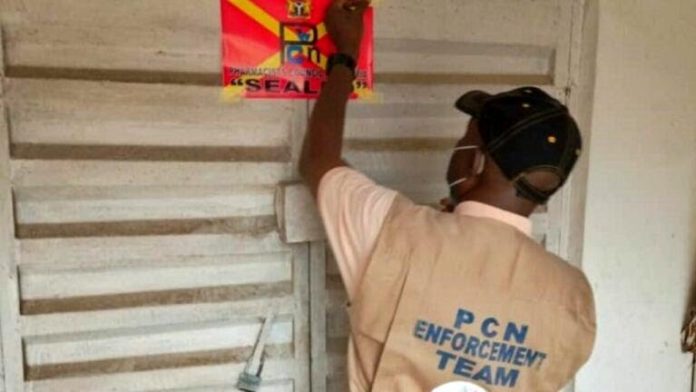No fewer than 66 pharmacies and 313 Patent Medicines Shops were shut down by the Pharmacy Council of Nigeria (PCN) in Port Harcourt, Rivers State for various illegal operations.
This development was made known by the association’s Director and Head of the Enforcement Department, Stephen Esumobi on Thursday evening.
He stated that the clampdown on illegal medicine shops did not only affect the city but also neighbouring communities.
According to him, the national enforcement team of the council inspected the 379 patent medicine shops in three local government areas.
Esumobi said over the years, PCN had established structures in states for effective engagement and regulation of stakeholders in the drug distribution chain across the country.
He further said the Pharmaceutical Inspection Committees and Patent and Proprietary Medicines Vendor Committees engaged and sensitised stakeholders on the need to comply with relevant regulations.
READ ALSO: Five feared dead as Gunmen Attack Apostle Johnson Suleiman Convoy In Edo
He blasted the patent medicine shop owners for ignoring the numerous warnings of PCN in Rivers State on the likely damages this may cause.
He said, “Most patent vendors are not registered with PCN and engage in activities far beyond their scope, thereby endangering public health.
“The national enforcement team has been in the state since the beginning of the week. At the end of the exercise, 543 premises were visited.
“These comprise 386 patent medicine shops and 157 pharmacists. A total of 379 premises were sealed, comprising 66 pharmacies and 313 patent medicine shops.
“It will interest you to note that we have been to only three local government areas; Port Harcourt city, Obio/Akpor and Ikwerre, for now.”
Other offences which attracted the PCN hammer, Esumobi said, were poor access control to the “poison cupboards, poor storage facilities, stocking and sale of prescription and other ethical products by patent medicine vendors.”
He explained that ethical products have a very low margin of safety, adding, “Most times, when they are not dispensed under the supervision of the pharmacist, it could endanger the health of the patient.
The PCN head of the enforcement department advised members of the public to source all their drug needs from registered and currently licensed pharmacies.

